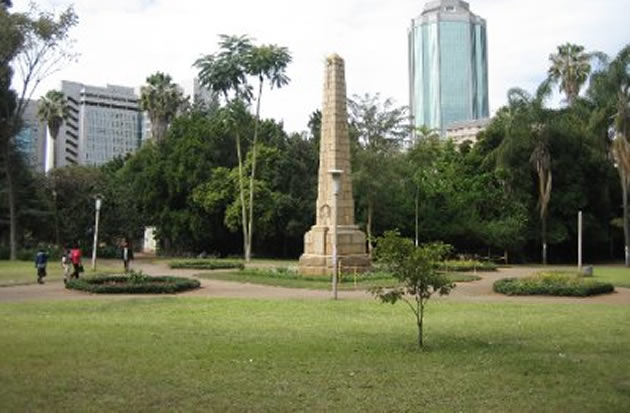Editorial Comment: We need our public open spaces back

Amidst the land corruption, the abuse of office by public officers, the rezoning of public lands, the building of houses on wetlands and all the other horrors that have been uncovered and are still being uncovered is the loss of the opportunity to make our cities more liveable.
We have been losing public open spaces, the land for our future sports facilities, and even more importantly for our future parks and nature reserves, and unless quite a lot of the mess created over the last two decades is reversed we are one day going to have cities that are solid expanses of high density housing from edge-to-edge without any break or green space.
These are things that need to be zoned and put in place when we lay out new suburbs, and need to be preserved in old suburbs. We cannot in 20 years time, or 50 years time or next century demolish swathes of housing. We will just have concrete jungles.
Already in “high density” suburbs, and especially the newer ones, the plots are so small that once even a modest house is built, there is no room for a garden, just a kitchen yard for laundry. So children play in the streets.
Even in the “low density” suburbs, densities are rising fast. Plots are being subdivided, cluster housing, town houses and flats are being built. And the master plan for the whole metropolitan region encourages this, so Harare and the satellite towns can absorb the growing population without Harare linking up with Mazowe and Marondera.
Professional town planners think about this a lot, which is why we have so much talk about infill schemes, about the new national housing programme having a major component of new blocks of flats, about the sewer network being driven into the “leafy suburbs” so that densities can rise, about existing sewer treatment plants being expanded and new plants built, at least three in greater Harare to cope with the unsewered drainage systems.
Oddly enough, along with all their selfishness and land grabbing, the colonial settlers had the right idea, possibly because they managed to hire a good town planner to lay out the original settlement.
Five blocks of open space for future parks were marked off: Africa Unity Square, Harare Gardens, Greenwood Park in the upper Avenues, the Kopje and the old racecourse, and even open space to the east and west of the city centre.
Some of these were accidental. Africa Unity Square was the old Fort Salisbury, and was never sold. Harare Gardens was a wetland with springs and extended down the stream, now covered by Julius Nyerere Way.
There was nibbling at the edges and the swamp to the south was drained, but a decent park was left. Attempts to convert the Kopje to expensive housing were defeated after a blazing row, although the lack of piped water and no chance of digging wells there helped, but the western spur was nibbled away.
Greenwood Park started as a place where senior police officers at their headquarters could park their horses without walking to the police camp. The racecourse was moved and is now the civic centre and half covered in car parks.
But we still have much of that space and present and future generations are grateful.
After what was seen as a private development disaster in Avondale, where the difficulty of finding land for a school even meant that the school eventually built there had to be split in two, town planning laws were changed.
Private development was encouraged, but developers were compelled by law as they converted a farm to a suburb to hand over around a fifth of the land to the State for future schools, open spaces, parks and other public use.
Accidentally much of this land was wetland, because it could not be built on, but these were preserved, although some became most of the golf courses, but these are still open spaces even if fenced off.
In the better planned public development, the inner ring of suburbs and the high density suburbs, open space was left, which is why we still have the Zimbabwe Grounds, and the river and stream valleys left open.
Much of this space is regarded as waste land, or a place to dump garbage, or shelter for vagrants, or a useful place to rent out as temporary car sales, but that will not be the case forever.
As we move to a middle income country, and then towards a modern developed country, those spaces will become vital to make the city liveable, and attractive.
Garbage will be collected, vagrants rehoused, car sales moved to private land, and the waste land becoming parks and recreation grounds.
We see this in developed countries. Old royal parks in Europe, close to the old urban centres and set aside so kings and princes could do a bit of hunting without a week-long break from their desks, are now major parks and public gardens, with old village commons now inner city parks as the tide of development moved out and developers found they could buy these.
Even in America, where private developers have so many rights, there are old military bases now used as parks and there was that genius who, against vast opposition and derision, managed to stake out Central Park on Manhattan Island before the houses swept north.
A lot of the battles in Zimbabwe over public space are using the wetland laws largely because these are more effective than town planning laws.
Councils, backed by a willing Minister in the old dispensation, were eager to rezone public land set aside for open space so that this could be sold for housing, often to councillors and their friends.
The rezoning was legal, if irregular, and we had mayors saying the “old planning” was obsolete. But you cannot rezone a wetland and this has helped.
It is not a bad compromise, mind you, to reserve the wetlands as the public open spaces. This is an efficient way of using land, build on the dry land and keep the wet land open. And there are enough vleis, streams and rivers to ensure a significant block of land is left open for future generations.
But it requires policy decisions now. Public land was set aside by developers under the old laws, and must be preserved and reclaimed where possible. Nibbling at the edges of wetland must be stopped.
Even those temporary leases for car sales need to be re-examined, to see when the land can be reclaimed.
We have lost a lot of our future through the corruption, the selfishness, the lack of vision. The planners had it right: allow densities to rise, but ensure there were places where children could play in a swathe f small parks; ensure there were larger areas that could be the main public gardens and nature reserves.
In short, we have to ensure that the great cities of the future wealthy Zimbabwe are places where we want to live. Housing can be rebuilt and redeveloped, it happens all the time. But we cannot get back the land we need to be able to breathe.
We have to act now.









Comments